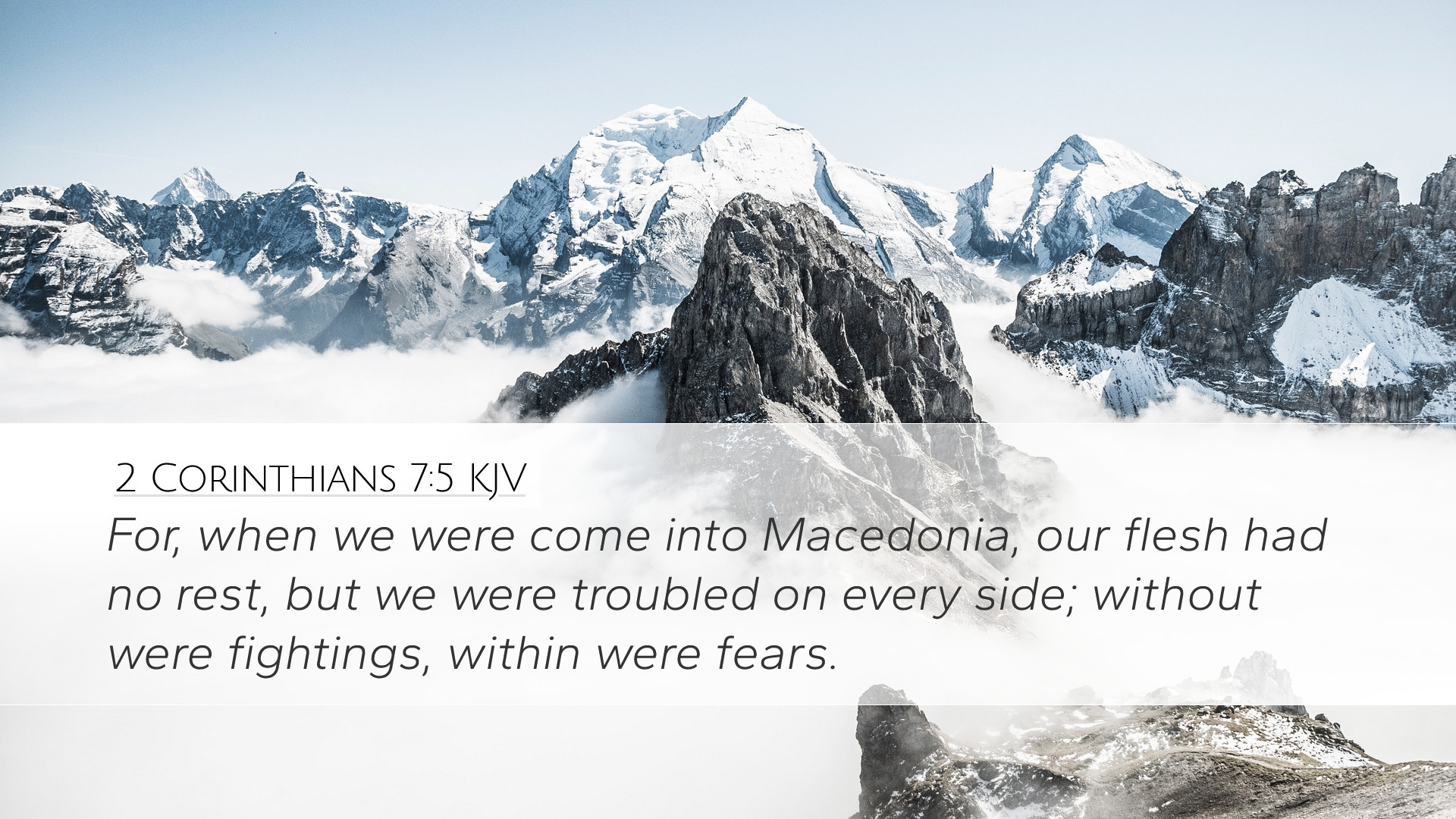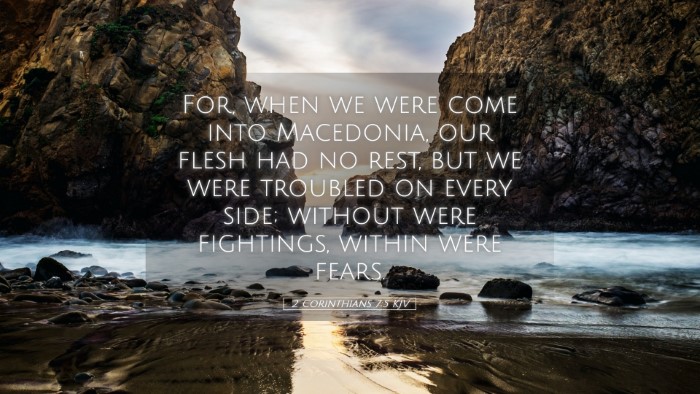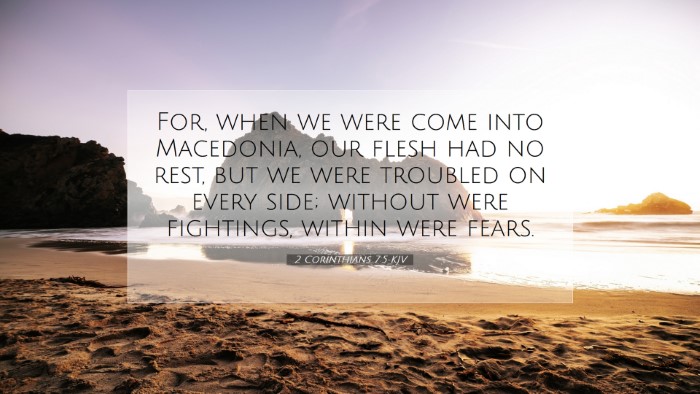Commentary on 2 Corinthians 7:5
Verse: "For when we were come into Macedonia, our flesh had no rest, but we were troubled on every side; without were fightings, within were fears."
Contextual Overview
This verse is situated within the broader narrative of Paul's second epistle to the Corinthians, where he addresses issues concerning comfort, suffering, and the nature of ministerial service. Paul, having endured significant trials and spiritual struggles, seeks to convey both the weight of his afflictions and the profound comfort found in Christ.
Insights from Commentaries
Matthew Henry’s Commentary
Matthew Henry emphasizes the theme of inward and outward struggles that characterize the life of a Christian minister. He highlights that while the Christian experience is often marked by external conflicts (such as opposition from others), it is equally fraught with internal fears and doubts. Henry suggests that these struggles are universal among believers, particularly those engaged in ministry. He points out that despite these trials, there is a transformative work of God that sustains and comforts the faithful.
Albert Barnes’ Notes
Albert Barnes offers a detailed exploration of the circumstances surrounding Paul’s situation in Macedonia. He notes that the Apostle faced significant physical dangers, misunderstandings, and psychological pressures. According to Barnes, Paul’s description of being troubled “on every side” indicates a sense of overwhelming distress that is often unrecognized in the lives of public figures. Barnes underscores the reality of fear in the Christian journey and affirms that even exceptional leaders like Paul are not exempt from such experiences. He emphasizes that these moments of vulnerability ultimately bring believers closer to God who comforts us in our troubles.
Adam Clarke’s Commentary
Adam Clarke's treatment of this verse provides a pastoral insight into the emotional and spiritual toll of ministry. He points out that “our flesh had no rest” signifies a deep personal burden that Paul carried. Clarke elaborates on the duality of external and internal strife, positing that while the world might present physical dangers, the internal fears can be equally daunting. Clarke advocates that this dual struggle is part of the divine calling, which ultimately leads to maturity in faith. He further emphasizes the role of comfort from God which Paul and other believers receive amid their trials, reassuring them of God’s presence in times of distress.
Theological Themes
- Conflict and Comfort: This verse presents a paradigm of Christian life where conflict coexists with divine comfort. It vividly illustrates the reality that fear and struggle are intrinsic to the believer's experience, particularly in leadership.
- The Ministry of Reconciliation: Paul’s struggles are not merely personal, but serve the greater purpose of reconciliation within the Church. His plights are framed within the context of a calling to bring peace and unity among the Corinthians, suggesting that even in turmoil, the work of ministry must continue.
- Human Vulnerability: The acknowledgment of fear by a figure like Paul serves as a powerful reminder that Christian leaders are not immune to human emotions. This honesty is vital for fostering a compassionate and understanding community among believers.
- God’s Faithfulness: Implicit in Paul’s narrative is the assurance of God’s faithfulness in the midst of trials. The struggles serve to deepen the faith of both the minister and the congregation, highlighting God's ability to sustain them.
Conclusion
2 Corinthians 7:5 encapsulates the essence of the Christian experience, characterized by struggles that lead to deeper reliance on God. The insights provided by Matthew Henry, Albert Barnes, and Adam Clarke coalesce around a central truth: although the path of the believer is fraught with challenges, it is also marked by profound divine comfort and transformation. This passage serves as an encouraging reminder to pastors, theologians, and all believers that in our most troubled times, we find an ever-faithful God ready to meet our fears with His peace.


